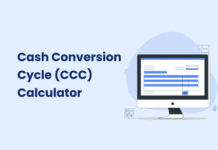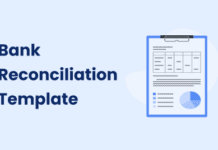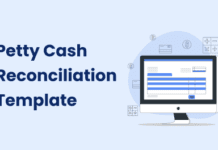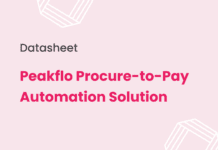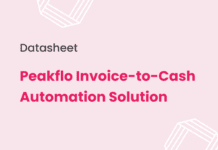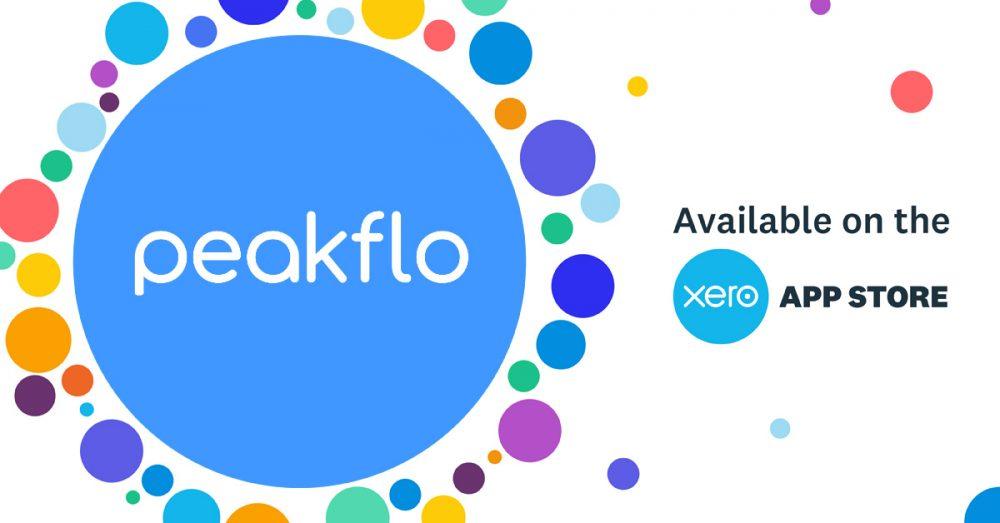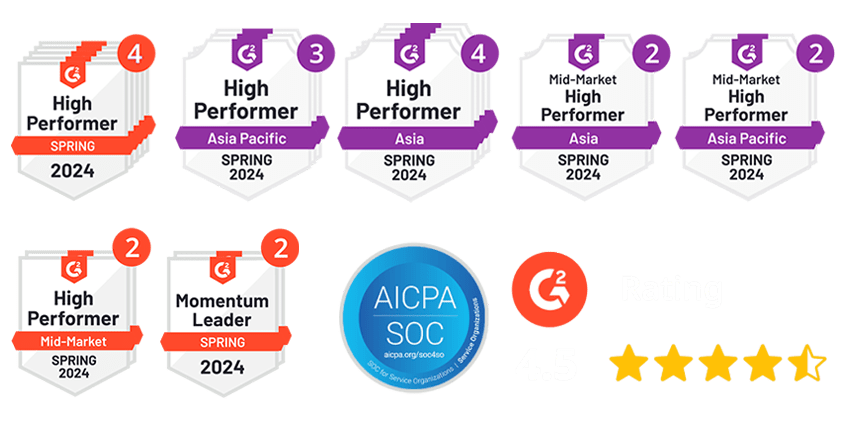AI agents for business are changing how companies approach productivity and efficiency challenges. The market shows remarkable growth potential, with projections indicating a 45% CAGR over the next five years. These intelligent systems have moved beyond experimental technology to become practical tools for organizations seeking competitive advantages.
What exactly is an AI agent? Unlike basic automation tools, AI agents analyze information at scales no human team could achieve, spotting patterns and delivering strategic insights that improve business decisions. They handle repetitive tasks with precision and speed, cutting human error while freeing employees to focus on higher-value work. One organization discovered that a project previously requiring six analysts working for a week could now be completed by a single employee with an AI agent in under an hour.
AI agents create value beyond internal efficiency improvements. These systems enhance customer service by providing consistent, round-the-clock assistance. They strengthen customer relationships by greeting clients, answering account questions, tracking orders, and delivering personalized product recommendations. Most importantly, implementing AI agents can integrate smoothly with your existing processes without major disruptions.
This guide will show you practical steps to start using AI agents in your business today, helping you understand their capabilities and identify opportunities for immediate impact.
Step 1: Understand What AI Agents Can Do for Your Business
Starting with AI agents means understanding their practical capabilities and how they differ from tools you might already use. These systems are changing business operations across industries, yet many leaders struggle to identify specific applications that could benefit their organizations.
What is an AI agent?
AI agents are autonomous software systems that use artificial intelligence to accomplish goals and complete tasks on behalf of users. Unlike traditional software, these intelligent agents can perceive their environment, make decisions, and take action with minimal human oversight.
AI agents demonstrate reasoning, planning, and memory capabilities that enable them to:
- Analyze data and plan tasks
- Take action and adapt in real-time
- Learn and improve over time
- Collaborate with other agents and systems
- Remember across tasks and changing states
These capabilities allow AI agents to function as autonomous, decision-making entities that don’t just respond to instructions—they show initiative. They continuously collect information from various sources, using memory and specialized tools to understand their environment and track important details.
Examples of AI agents in business today
Companies across different sectors are implementing AI agents for specific business functions. A leading consumer packaged goods company used intelligent agents to create blog posts, reducing costs by 95% and improving speed by 50x—publishing new content in a single day instead of four weeks.
A global bank deployed AI virtual agents for customer interface, resulting in a 10x reduction in service costs. Medical practices and hospitals use agents to help with scheduling and improve automated note-taking during patient visits.
The pharmaceutical industry shows compelling results. One biopharma company utilized AI agents for lead generation, reducing cycle time by 25% and gaining 35% in time efficiency for drafting clinical study reports. An IT department modernized legacy technologies with AI agents, increasing productivity by up to 40%.
Why they’re more than just chatbots
AI agents represent a significant advancement beyond traditional chatbots. Chatbots follow scripted conversation workflows that need manual construction, while AI agents use generative AI, large language models, and natural language processing to understand, respond to, and act on customer queries.
The fundamental difference is that chatbots regurgitate predefined information, while AI agents reason. This reasoning capability allows them to provide contextual, adaptive customer service that improves over time. One implementation showed that this ability to interpret intent improved customer satisfaction by up to 120%.
AI agents can perform complex tasks like researching customers for deals, writing job postings and offer letters, and evaluating repair options for manufacturing equipment. They can also look for information across different tools, taking users’ roles and other context into account to stay topical.
The distinction becomes clear when you consider that if a chatbot is akin to a vending machine, an AI agent is more like a personal chef with an impressive knowledge base, natural language understanding, and the ability to learn from historical data.
What is an AI Agent and Why It Matters for Business
AI agents represent a significant step forward in business technology, offering capabilities that extend far beyond simple automation tools. Understanding how these intelligent systems actually work and why they differ from conventional solutions helps businesses identify the right opportunities for implementation.
Definition and key characteristics
An AI agent is a software program designed to interact with its environment, perceive data, and take autonomous actions to achieve specific goals. Unlike traditional software that follows rigid instructions, AI agents demonstrate reasoning, planning, and memory capabilities.
The core characteristics that define true AI agents include:
- Autonomy: Operating independently without constant human intervention
- Perception: Sensing and interpreting their environment through various inputs
- Reactivity: Assessing conditions and responding accordingly
- Reasoning: Analyzing data to make informed decisions
- Learning: Enhancing performance through experience
- Communication: Interacting with humans and other systems
- Goal-orientation: Working toward specific objectives
These characteristics enable AI agents to function as autonomous, decision-making entities that don’t just respond to instructions—they show initiative and adapt to changing circumstances.
How AI agents differ from traditional automation
Traditional automation (including robotic process automation) follows predetermined rules and fixed pathways—much like a train on tracks. These systems excel at handling repetitive, predictable tasks but struggle when confronted with exceptions or novel situations.
AI agents operate on a completely different principle: cognitive processing. They analyze the full context, reason about situations, plan appropriate actions, and adapt based on outcomes. This makes them more like a car given a destination with no fixed route—able to navigate detours and unexpected obstacles.
Traditional automation might break down when faced with new scenarios, while AI agents can reason through problems and find novel solutions. This makes them particularly valuable for tasks involving reasoning, real-time adaptability, or autonomous decision-making in unpredictable environments.
Why businesses are adopting AI agents now
The adoption of AI agents is accelerating rapidly, with 79% of companies already implementing them and 88% planning to increase AI-related budgets due to agentic AI. Of those adopting these systems, 66% report measurable value through increased productivity.
Organizations implementing AI agents have seen dramatic efficiency improvements—projects that once required multiple analysts working for a week can now be completed by a single employee in under an hour.
Businesses are recognizing that how they use AI agents will give them a significant competitive advantage in the coming year, with 73% of executives agreeing with this assessment. Three-quarters of executives believe AI agents will reshape the workplace more profoundly than the internet did.
How AI Agents Work: The Observe-Plan-Act Cycle
AI agents for business operate through a continuous workflow known as the observe-plan-act cycle. This cyclical process enables agents to interact with their environment, make informed decisions, and execute actions to accomplish specific goals with minimal human oversight.
1. Observing the environment
AI agents constantly collect and process information from their surroundings during the observation phase. This includes monitoring user interactions, tracking key performance metrics, and gathering data from available sources. These agents maintain memory across conversations, providing ongoing context for multi-step operations.
Traditional systems passively receive information, but AI agents actively sense their environment through various inputs. They analyze web traffic, customer feedback, and sales records to extract strategic insights. Advanced agents retain both short-term and long-term memory using vector databases, allowing them to recall past tasks and tailor their behavior based on prior interactions.
2. Planning with large language models
The planning stage demonstrates where large language models (LLMs) show their reasoning capabilities. When receiving a specific instruction or goal, the agent breaks it down into smaller, actionable tasks. These models evaluate and prioritize actions based on their understanding of the problem, goals, context, and memory.
Planning processes have evolved significantly, with many agents now able to perform chain-of-thought reasoning—weighing options and making informed decisions. During this phase, AI agents may access the internet to search for additional information or interact with other agents to exchange data.
3. Taking action through connected systems
Following the planning stage, AI agents utilize interfaces with enterprise systems, tools, and data sources to perform tasks. These actions might include updating records, triggering workflows, or completing multi-step processes by bridging human-friendly interfaces with machine-level operations.
The observe-plan-act cycle creates a self-reinforcing system. AI agent tools continuously analyze how the world has changed based on past interactions and learn to become more efficient over time. This allows businesses to benefit from increasingly effective automation that adapts to new challenges rather than breaking down when faced with unexpected scenarios.
Core Components of AI Agents
The building blocks that power AI agents for business consist of interconnected components working together to create intelligent systems. Each element plays a vital role in enabling agents to observe, think, remember, and act autonomously.
Agent interfaces and APIs
Agent interfaces serve as the gateways through which AI agents connect with users, databases, sensors, and other systems. These protocols and APIs allow the agents to observe their environment effectively. These interfaces determine how agents receive input and deliver output, shaping the user experience. Many advanced agents integrate with third-party APIs to extend their capabilities beyond their native training.
Memory and context modules
Memory components enable AI agents to retain information across interactions, making them genuinely contextual and personalized. This module is typically divided into:
- Short-term memory: Stores conversation history and immediate context for coherence within sessions
- Long-term memory: Maintains structured knowledge, vector embeddings, and historical data for persistent recall
- Episodic memory: Records specific past events for case-based reasoning
- Semantic memory: Contains factual knowledge, concepts, and rules
Vector databases like Pinecone and Weaviate often power these memory systems, enabling efficient semantic search and retrieval.
Planning and decision-making engines
Planning modules typically use large language models to break complex problems into manageable tasks. Unlike reactive systems that respond instinctively, planning engines map out action sequences before execution. These components handle task decomposition, action sequencing, and logical dependencies between steps. The planning process involves logic, machine learning models, and predefined heuristics to establish optimal action paths.
Action modules and integrations
The action module implements the agent’s decisions in the real world. After planning determines the appropriate response, this component executes necessary steps by calling tools, APIs, or interacting with external systems. This enables AI agents to perform meaningful actions like updating records, sending communications, or analyzing data. Modern AI agents can connect with over 1,000 integration actions through standardized frameworks, dramatically expanding their usefulness in business operations.
These components work together seamlessly, creating systems that can handle complex business processes while adapting to changing requirements and learning from each interaction.
Top 5 Use Cases of AI Agents in Business
Businesses across industries are implementing AI agents in specific operational areas to address common challenges and improve efficiency.
1. Customer service and support
AI agents provide 24/7 support, handling customer inquiries and resolving service tickets without human intervention. They process customer queries to understand intent and context while offering personalized assistance. Organizations report reduced response times and operational costs by automating routine tasks.
2. Sales and CRM automation
Sales teams use AI agents to qualify leads with predictive algorithms, engage customers through personalized interactions, and deliver data-driven sales forecasting. These systems nurture potential customers by automating personalized follow-ups and email sequences. They also simplify scheduling and eliminate back-and-forth communication.
3. HR and employee onboarding
HR departments streamline employee onboarding by using AI agents to automate document verification and IT request submissions. These agents answer common questions about benefits or company policies while personalizing training curricula. They help create actionable goals and career development plans for employees.
4. IT support and troubleshooting
IT troubleshooting agents identify potential issues before they impact users through continuous system monitoring. Unplanned downtime costs Fortune 1000 companies approximately USD 2.50 billion annually. These agents implement solutions autonomously for common issues, reducing resolution time significantly.
5. Marketing personalization and content creation
Marketing teams deploy AI agents to analyze user behavior and generate tailored messages for customers. These systems manage media buying across platforms while monitoring real-time performance data. They streamline operations by automating content generation, reporting, and performance tracking.
Benefits of AI Agents for Business Operations
The practical benefits of AI agents for business operations create measurable improvements across multiple areas of organizational performance. These advantages extend beyond simple task automation to deliver strategic value for companies implementing these systems.
1. Speed and Operational Efficiency
AI agents handle repetitive tasks with precision that manual processes cannot match. Companies report creating blog posts 50x faster than traditional methods, reducing production time from four weeks to just one day. IT departments have increased productivity by up to 40% after deploying these intelligent systems. Manufacturing operations using AI agents can proactively identify cooling system failures before they happen, shifting from reactive maintenance to predictive optimization.
2. Financial Returns and Resource Management
The cost savings from AI agent implementation prove substantial across industries. A global bank reduced costs by 10x through virtual agent implementation. Organizations typically see 30-40% improvements in resource efficiency while maintaining system performance. Cloud environments show particularly strong results, with businesses cutting infrastructure costs by 30-40% while simultaneously improving application performance.
3. Enhanced Customer and Employee Satisfaction
Customer interactions improve significantly with AI agent deployment. At Klarna, customers resolved problems in under 2 minutes versus 11 minutes with human agents. This efficiency yielded an estimated $40 million in additional profits for 2024. For employees, AI agents handle routine tasks, allowing focus on strategic initiatives that add greater value.
4. Continuous Availability and Scalability
AI agents provide constant operation across time zones without quality degradation. This continuous availability proves especially valuable for global organizations requiring consistent performance regardless of time or location. The scalability advantage allows businesses to handle increasing workloads without proportional increases in staffing costs.
By implementing AI agents strategically, businesses can address multiple operational challenges while positioning themselves for sustained growth and competitive advantage in their respective markets.
Peakflo AI Agents: Smarter Automation for Your Business
Peakflo AI Agents take the power of agentic AI and make it accessible for finance and business operations. These intelligent agents automate repetitive workflows, such as invoice collection, payment follow-ups, and order confirmations, while analyzing data to provide actionable insights. Unlike standard automation, Peakflo AI Agents learn from interactions, adapt to changing business conditions, and collaborate with your existing systems seamlessly.
Finance teams, for example, can reduce manual follow-ups, speed up cash collection, and improve DSO (Days Sales Outstanding) by letting AI agents handle routine customer interactions. Sales and operations teams can also leverage these agents for lead qualification, personalized customer outreach, and faster order confirmations—without overloading employees with repetitive tasks.
Peakflo AI Agents don’t just save time—they unlock strategic value. With AI-driven decision-making, contextual memory, and seamless integration across platforms, businesses gain operational efficiency, cost savings, and higher customer satisfaction.
Start small, scale fast, and let Peakflo AI Agents handle the busywork so your team can focus on what matters most: growth and strategy.
Try Peakflo AI Agents today and see how intelligent automation can transform your business.
A Way Forward
AI agents offer businesses practical solutions to common operational challenges. These systems handle routine tasks with accuracy while providing employees the freedom to focus on strategic work that drives growth. Companies implementing AI agents see measurable improvements: faster project completion, reduced operational costs, and enhanced customer experiences.
The businesses implementing AI agents today position themselves for sustained competitive advantages. As these systems become more sophisticated, they’ll handle increasingly complex workflows and decision-making processes. Rather than waiting for perfect solutions, focus on areas where AI agents can solve existing problems and deliver quick wins.
The question isn’t whether AI agents will impact your industry—it’s which business processes you’ll enhance first to stay ahead of competitors already gaining these operational advantages.
FAQs
Q1. How can I start implementing AI agents in my business? Begin by identifying 1-2 specific areas where AI agents could add value, such as customer service or sales automation. Start small with trials of different AI products to test their accuracy and effectiveness. This approach allows you to gradually integrate AI while ensuring safe and responsible use.
Q2. What are the key steps to transform my business using AI agents? Define clear goals, map customer touchpoints, identify pain points, explore AI agent solutions, manage the change process, and evaluate outcomes. This systematic approach helps you capitalize on AI opportunities while addressing specific business needs.
Q3. How long does it typically take to develop an AI agent for a specific business vertical? The development time varies based on complexity, but it’s possible to create a basic MVP (Minimum Viable Product) in about a week with the right tools and tutorials. However, more sophisticated agents may require additional time for refinement and testing.
Q4. What are the main benefits of using AI agents in business operations? AI agents significantly increase efficiency and speed, often reducing task completion times by 50x or more. They also provide cost savings, improve customer and employee experiences, and offer 24/7 availability. Many businesses report 30-40% improvements in resource efficiency after implementing AI agents.
Q5. Do I need extensive AI knowledge to start using AI agents in my business? No, you don’t need to be an AI expert to begin. Many user-friendly platforms and tools are available that allow businesses to implement AI agents with minimal technical expertise. Start by learning the basics through online resources and tutorials, then gradually build your knowledge as you implement and refine your AI strategy.

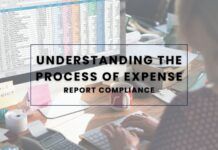







![Why AI Sales Calls Are Making Good Sales Reps Even Better [2025 Guide] ai sales calls](https://cdn-kmjmp.nitrocdn.com/YvtqmrsiHUxqerlSiZgbfzqqTARWTElr/assets/images/optimized/rev-834053b/blog.peakflo.co/wp-content/uploads/2025/09/65168cf6-3001-4733-8cbc-12d5684cf449-218x150.webp)










